the Cryptocurrency is Deek’s last chance to succeed in life, and he will not stop, no matter what.
Previous Chapters: Part 1 | Part 2 | Part 3 | Part 4 | Part 5 | Part 6 | Part 7 | Part 8 | Part 9 | Part 10 | Part 11 | Part 12 | Part 13| Part 14 | Part 15 | Part 16 | Part 17 | Part 18 | Part 19
“You will not enter Paradise until you believe, and you will not believe until you love one another. Shall I tell you something which, if you do it, you will love one another? Spread peace between yourselves.”
– Prophet Muhammad ﷺ, Sahih Muslim, Kitab al-Iman
A Changed Appetite
Deek still felt weary, as he hadn’t gotten much sleep before the girls showed up and – thankfully – pulled him out of that awful dream with Queen Latifah embezzling all his treasure in exchange for a drink of water and a piss. Yes, he thought grudgingly. I understand the point of the dream. I get it.
Still, the makhlama had hit the spot, and he felt well enough to work. He’d been neglecting the cryptos, and that would not do. He fired up one of his computers. The girls had been impressed with his setup here, but it wasn’t that different from what he’d had back in the closet, except that the computers were state-of-the-art, and the screens were huge
 Normally, he would grab a junk food snack before sitting down to work. His favorites were the Petit Ecolier cookies: buttery biscuits topped with chocolate squares. Somehow eating classy French cookies seemed like less of a sin.
Normally, he would grab a junk food snack before sitting down to work. His favorites were the Petit Ecolier cookies: buttery biscuits topped with chocolate squares. Somehow eating classy French cookies seemed like less of a sin.
Today, he felt no such craving. Though the emotional effects of the Namer’s potion had dissipated, it seemed the physical effects persisted. Instead, he put a bunch of grapes on a plate, said bismillah, and popped one into his mouth, relishing the bright sweetness. Forget Petit Ecolier! This tiny fruit, crisp on the outside yet bursting with juice, was the ultimate dessert. It was perfectly designed by Allah, and needed no factory or packaging. It was a miracle. How had he not realized this before?
Signs of a Frenzy
Reviewing his crypto holdings, he was stunned. Everything was up massively. Some of his tokens had tripled or more since he last checked. One of the AI tokens had done a x35. Even large-cap cryptos like Bitcoin, Ethereum, and Solana were skyrocketing. The hair stood up on the back of his neck.
Rather than visiting the usual cryptocurrency news sites and blogs, he brought up a mainstream news aggregator website and, popping a few grapes into his mouth, looked over the headlines. He didn’t even have to search for “cryptocurrency.” It was right there in the mainstream headlines:
“‘I Sold Everything To Buy Crypto’ – Buyers Make Desperate Moves as Crypto Frenzy Spreads.”
“Crypto Market Cap Increases By Billions as Retail Money Pours In.”
“Crypto: Dangerous Bubble or New Financial Paradigm?”
Skimming the articles, he saw that enthusiasm for crypto had reached fever pitch. Middle-class working people were mortgaging homes and selling their cars to buy Bitcoin. Financial analysts and writers who, a year ago, had proclaimed that crypto was dead, were now singing its praises. One wrote:
“Crypto has made me a believer. We are witnessing the birth of a new paradigm, that of decentralization. In this new market, everyone gets rich.”
Another said:
“This is a once-in-a-lifetime opportunity to acquire generational wealth. Crypto is changing the very definition of finance. You can throw all the old rules out of the window: the day of DeFi has arrived.”
He checked the crypto Fear and Greed Index. It was at 93 out of 100, signifying a state of extreme greed, which meant that confidence in crypto was nearly total.
As a final check, he visited a website that monitored crypto inflows and outflows, meaning how much crypto was being sent to centralized exchanges to be sold, and how much was being withdrawn, to be held in long-term storage.
He saw what he expected to see. Very large holders, known in crypto parlance as whales, were quietly selling. Meanwhile, small buyers – called retail buyers – were flooding in, paying any price for the most popular tokens. The pension funds, investment funds, banks, and corporations were using the retail buyers as exit liquidity.
Deek had been through three crypto cycles, and he knew what this reckless, panicked buying signified.
The entire crypto market was about to crash.
The fall would be dramatic and steep. Even blue-chip cryptos could lose as much as 90% of their value in a bear market, while smaller tokens would become worthless.
The Exit
 With shaking hands, he went through his wallets and sold all his holdings: blue chips, alts, meme coins, everything. He converted them into U.S. Dollar Coin, which itself was a type of crypto called a stablecoin, pegged to the value of the United States dollar.
With shaking hands, he went through his wallets and sold all his holdings: blue chips, alts, meme coins, everything. He converted them into U.S. Dollar Coin, which itself was a type of crypto called a stablecoin, pegged to the value of the United States dollar.
Even stablecoins were not necessarily safe in a bear market, however. Deek had seen other stablecoins lose all their value, especially those that used computer algorithms to maintain their price. USDC was supposedly backed by actual, physical US dollars, but Deek didn’t want to risk it.
He sent the bulk of the USDC to a centralized exchange account he’d opened in the name of Milestone Investments, and swapped it all for Euros.
He now had $40 million in USDC in a few different wallets, and 352 million euros in the Milestone account, which at the current exchange rate equaled about 440 million dollars. If he continued to value his real estate holdings at $22 million, his net worth was now $502 million.
That was it, he was out of the crypto market. He would hold the USDC until the coming bear cycle ended and the next bull run began, which might take two years. Until then, he was done.
This was far too much money to leave sitting inert in a non-interest-bearing account. Later, he would think about how to invest it, perhaps with BAM!’s guidance.
Half a Billion
He sat back, overwhelmed. The grapes remained on the plate, mostly uneaten. Sweat had broken out on his forehead, and he wiped it with his t-shirt sleeve. His breath came heavy, as if he’d just run a marathon.
 He slid from the chair and fell onto his knees and elbows on the marble floor. Head down, he focused on breathing. La ilaha il-Allah, he breathed, and it became a mantra. With every exhalation, la ilaha il-Allah. He remained like that until his knees became sore. He rolled up into a sitting position with his back against the wall.
He slid from the chair and fell onto his knees and elbows on the marble floor. Head down, he focused on breathing. La ilaha il-Allah, he breathed, and it became a mantra. With every exhalation, la ilaha il-Allah. He remained like that until his knees became sore. He rolled up into a sitting position with his back against the wall.
Half a billion dollars. His net worth was now half a billion dollars. He could not fathom it. The numbers were like the high score on a video game. It was cool, but what could you do with it?
He needed to talk to someone. He needed guidance. But who? He could not let it be known in the community that he possessed this kind of wealth. He’d never have a moment’s peace. Someone would always be after him for a loan, partnership, or favor.
There were three options:
He could talk to his genius Puerto Rican friend who didn’t care about money and had just saved his life with a trumpet.
There was Imam Saleh, who Deek trusted implicitly, and was a wise and gentle man.
Three, Rania, his life partner, was also his best friend.
Zaid Karim was not on his list of confidantes. Deek had always had an image of the Palestinian private eye as an action hero, valiant and unstoppable, but shallow. Ever since he’d seen Zaid praying in the Namer’s backyard, however, surrounded by cats, he’d begun to understand that his portrayal of Zaid might be one-dimensional and unfair. He did not truly know the man. All the more reason, in any case, not to confide in him.
There was really only one choice in the end. He had to see his wife.
Deek’s body was a ruin whose foundation had crumbled beneath it. He let himself tip over to lie on the floor. It was a hot day outside, but the AC was running in here, and the marble was icy against his skin. Lying there, using an arm as a pillow, he tried not to think of the massive wealth he now possessed. It felt like a tiny coal burning on the outside edge of his brain, demanding that he do something. But he didn’t know what.
“What is a treasure worth,” Latifah had asked, “if you would give half to take water in, and the other half to let it out?”
The Gaza Decision
He closed his eyes and remembered the conversation between him and Zaid at the Namer’s house. “If you really want to give away a million dollars,” Zaid had said, “Give it to the charities in Gaza. The situation there is beyond dire. And purify your wealth in the process.”
Still lying on the floor, he took his phone out of his pocket and called Imam Saleh.
“As-salamu alaykum ya Deek Saghir! How is your iman today?”
“Umm… I don’t know.” The interrogatory confused him. He had to pause before continuing. “I have a question. Do you know any charities operating in Palestine, and especially in Gaza, that accept donations in cryptocurrency?”
“No one’s ever asked me that. I’ll text you some names of good charities, but I have no idea about the crypto angle. While I have you on the phone, would you be willing to do a seminar on cryptocurrency for the community? What it is, how to invest, and so on?”
Deek was not eager for publicity, but Imam Saleh was someone he deeply respected, so he simply said yes.
“Superb, mashaAllah. I’ll set it up.”
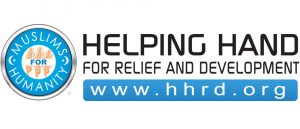 When Saleh sent the list of charities, Deek researched them. One, Helping Hand for Relief and Development, ran projects around the Muslim world, including in Palestine, and accepted crypto. They had a high rating on Charity Navigator.
When Saleh sent the list of charities, Deek researched them. One, Helping Hand for Relief and Development, ran projects around the Muslim world, including in Palestine, and accepted crypto. They had a high rating on Charity Navigator.
He filled out a form on the HHRD donation page with his contact info, then selected USDC from a drop-down list of cryptos. From the many projects they had listed, he selected Palestine. In the amount field, he hesitated, then typed 10,000,000 and hit send. He was given a USDC address, which he copied. Opening his crypto wallet, he pasted the address and sent ten million USDC.
The little burning spot in his brain cooled. He closed his eyes, lay his head on his arm, and fell asleep to the sounds of the bubbling fountain and the susurration of the air breezing through the vent.
He woke up an hour later shivering with cold, and with a sore neck. His phone was buzzing on the floor.
“Hello?” His voice was the croak of a frog.
An Invitation Declined
“As-salamu alaykum. Is this brother Deek Saghir?” Pakistani, by the accent. Educated.
Still groggy, he wiped a bit of drool from his chin. “I guess so. That’s what my mother named me.”
“Brother Deek, did you mean to donate ten million dollars in crypto?”
“Oh.” He tucked one arm inside his shirt as a chill racked his body. “You’re from… HHRD?”
“My name is Mahboob Syed, I am the director of Helping Hand’s Los Angeles office.”
“Yes. I meant to.”
“Allahu Akbar. This is extraordinarily generous. Would it be possible for you to come to Los Angeles? We will pay for your transport.”
Deek remembered how this had impressed him when BAM! offered it. It had made him feel respected and important. Now it didn’t seem to matter.
“Why? To ask for more money?”
“Not at all. We only want to meet you.”
Deek rubbed his right cheek vigorously. “I appreciate the offer, brother Mahboob. I’ll take a rain check.”
“Very well, but I want to extend to you an invitation to see how your money is spent. I see you earmarked the money for Palestine. Some of the money will go to Palestinian refugee camps in Jordan and Lebanon, and some for food and medical supplies for Gaza. If you like, we will take you to the camps, and you can meet the refugees yourself. Many are widows and orphans.”
Deek sat up, rubbing his sore neck. “Wow. I could do that?”
“Absolutely. One of our donors recently threw an Eid party for the widows and orphans in the Ain el-Hilweh camp in Lebanon. Ain el-Hilwah has a high rate of extreme poverty, due to overcrowding, limited infrastructure, and lack of employment. One thing we will do with your money is create work projects to provide opportunities. For example, simply buying a sewing machine can enable a woman to work as a seamstress. With a donation like yours, we might build a small factory. You can see this with your own eyes. Often the refugees make dua’ for the donors.”
Thinking of the hardship of those people’s lives, and that the money he had earned through hard work and the blessing of Allah could make such a difference, warmth suffused Deek’s chest, and he stopped shivering.
“I’ll think about it. But spend the money as you see fit. I trust you.”
Mahboob made dua’ for Deek and his family, and they ended the call.
A Conduit
Deek sat, pensive. The thought of a room full of widows and orphans – women who had lost their husbands to Israeli violence and oppression, and children who were bereft, with no one but Allah to care for them – making dua’ for him, Deek Saghir, was humbling and almost frightening. Who was he that they should make dua’ for him? He was no one, just a fool who’d had the good fortune to get rich playing with imaginary money. They were the ones for whom the whole world should be making dua’. Yet most of the world had turned their backs on them.
He was beginning to realize what this money meant. This money had not been given to him to stay in expensive hotels and drive fancy cars. He was only meant to be a conduit. This realization gave him goosebumps.
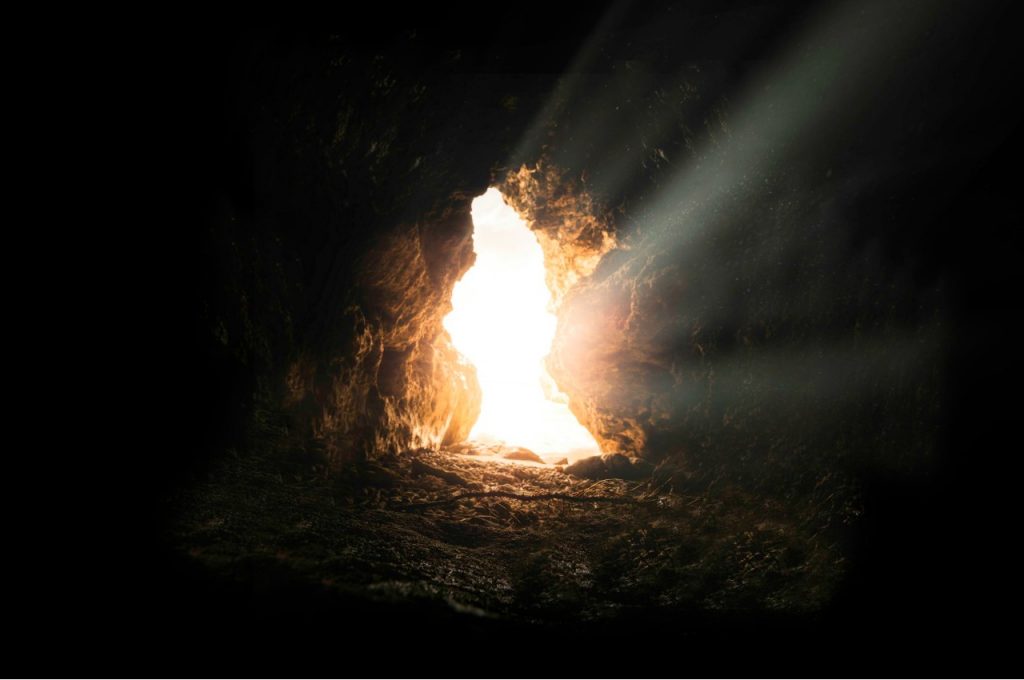
For the first time in the last several days, he did not feel lost. Rather, he felt like a man in a cave who has just glimpsed the tiniest bit of sunlight in the distance.
He rose and made wudu, prayed ‘Asr, then changed into another of his tailored suits. This one was deep midnight blue with a subtle herringbone pattern that caught the light when he moved. The jacket hugged his shoulders perfectly, tapering to a slim waist, the fabric cool and weighty against his skin. Underneath, he chose a crisp white shirt with French cuffs, each fastened with small square cufflinks of black onyx set in silver. His belt and shoes matched—a rich espresso brown, polished to a mirror shine. The scent of his aftershave—cedar and bergamot—was subtle, like the scent of a forest lying just on the other side of a rise.
Looking at himself in the mirror, he realized that he’d lost a lot of weight. The protruding belly was gone, with only a slight rounding remaining. His face looked ten years younger. It was a welcome feeling to look in the mirror and feel good about himself for once.
Dreaming of Home
The auto detailing shop was on the other side of town. The hotel concierge provided a town car, and ten minutes later, he was in the back seat, being driven by a young black man with a fade cut, who, Deek learned during the course of the ride, was Afro-Panamanian but had never been to Panama. He wore gray slacks and a baby blue dress shirt worn thin at the shoulders.
“One day I’ll visit the land where my parents grew up,” the youth said wistfully, “I print pictures off the internet and put them in frames from the Dollar Store.”
Deek felt a surprising pang of recognition. He understood that longing completely. His family had left Iraq when he was nine years old, one step ahead of the mukhabarat – the Iraqi secret police – but carrying the vivid colors and scents of their homeland in their hearts. He remembered the narrow streets of his neighborhood, the smell of lamb grilling in the air, and the laughter of cousins in the courtyard. His family had fled tyranny and violence, and he had never returned. Yet in quiet moments, he still dreamed of it.
Now, for the first time, he realized he could go back. Not as a refugee boy clutching his father’s hand, but as a man with the means to stay in the best hotel, hire protection, and walk those streets again without fear.
When the young driver dropped him off, Deek opened his wallet. He was going to tip the youth twenty dollars, but on impulse, he took three thousand dollars from his wallet and handed it to the astonished driver. “Tell me about your trip when you get back. And buy me a Panama hat.”
Before the kid could formulate a reply, Deek was out of the car and moving on.
Goodbye Little Beauty
 The Porsche was pristine. They’d cleaned it, tuned it up, and repaired the window. If they had noticed any lingering smell from Deek’s embarrassing intestinal accident, no one said anything. Deek paid the bill and took off.
The Porsche was pristine. They’d cleaned it, tuned it up, and repaired the window. If they had noticed any lingering smell from Deek’s embarrassing intestinal accident, no one said anything. Deek paid the bill and took off.
He rolled up to the Porsche dealership on North Palm and was greeted by a fit and tanned young salesman in a black suit, with neatly cut blond hair and green eyes. He could have been a model if his cheeks had not been pockmarked by acne scars.
The salesman had barely introduced himself as Denny when Deek said, “I want to sell my car.”
Denny looked it over. “This is a classic model. You looking for something newer?”
“I don’t want to buy. Just sell.”
“Anything wrong with it?”
“It’s cursed.”
Denny blinked. “It’s a lemon? I’m sorry, we wouldn’t be interested in -”
“Nothing like that. It runs like a dream. But violence follows it.”
The salesman laughed. “You’re kidding.”
“Unfortunately not.”
“Can our shop check it out?”
“Go for it.”
The dealership lounge had a box of donuts on the table and a selection of fruits. Deek ignored the donuts and took a banana. He browsed a copy of the Los Angeles Times, skimming the international news. The articles about the Middle East carried a heavy pro-Israeli slant. It was undisguised and flatly racist. Disgusted, he threw the rag back onto the table.
Denny returned. “You were right. The car’s in good shape. We can offer forty thousand.”
Deek laughed. “It’s worth triple that.”
“I can go up to fifty.”
Deek’s face flushed. He was suddenly fed up with Americans and their deceptions. “Give me the keys. I’ll give it away to one of my friends before I sell it to you thieves.”
Denny handed over the keys reluctantly, and Deek walked away.
“Eighty-five!” Denny called after him. “Final offer!”
Deek whirled and pointed at him. “You should have started with that.”
Denny trotted up to him, grinning. “Hey, you’re Arab, right?”
“So?”
“I’ve visited lots of Arab countries. Negotiating is part of your culture. Tawwel baalak.” He held his hand palm up, fingers bunched together, and moved the hand up and down.
The use of the Arabic phrase and hand gesture, both meaning “take it easy,” made Deek snort with laughter. He studied the globe-trotting salesman for a moment, then thrust the keys back at him. “Make it ninety and you can write it up.”
Before he left, he paused beside the Porsche and ran his hand over the gleaming black roof. What a gorgeous little car. Machinery, art, and adrenaline wrapped in one small package. “Goodbye, little beauty,” he said. “I’m sorry I said you were cursed. Tawwel baalak, ya habibti.” In saying this, he meant the phrase in its literal sense, which was something like “lengthen your mind.” May the little car have a long and productive life.
New Ride, New Mission
He walked across the street to the Carmax used car lot and selected a two-year-old, twilight blue Kia Sportage. The compact, Korean-made SUV seated five people and had a V-6 engine and cloth seats. It was solid but definitely not a luxury vehicle, and actually rather ordinary looking. Which was what he wanted. Hopefully, no one would shoot him in the face over a used Kia.
He paid for it with his Milestone Investments card and drove away, loving the high perspective and smooth ride.
He parked under the shade of a tree in the Walmart lot nearby, and called Lubna.
“Hello, Deek. You’re not coming by again, are you? I just got off work, I’m tired.”
“As-salamu alaykum my beautiful sister. You know what, your family is very lucky to have you. And I see how hard you work. I admire you a lot.”
“Deek, tell me really.” She sounded genuinely worried. “Is there something wrong with you?”
He chuckled. “There are lots of things wrong with me. Speaking of your job, have you given notice yet?”
“Should I? Are things underway?”
“You need to get them underway.”
“Me? I’m just the principal.”
Tasks for Lubna
“I need you to take an active role,” Deek explained. “You’ve already been paid, after all. First, set up a board of directors. I’ll be the board president, you’re the vice president, and I would like Imam Saleh to be on it. We’ll need a Treasurer and Secretary as well, that makes five, and let’s say two more, for a total of seven. You might consider Safaa, my wife’s cousin, and a lawyer would be good too. But it’s up to you. Once you’ve done that, file for non-profit status.”
“Hold on, I need to write this down.”
Deek gave her a minute, then she said, “Anything else?”
“Yes. Start looking for teachers. We’ll begin next school year. I want people who are enthusiastic and malleable. Definitely no one who’s stuck on old-world methods. Also, we’ll need a curriculum. I’m sure there’s a lot more. We need someone with experience running a school.”
“Hold on. I’m writing.” A few moments later, she said, “What will you be doing while I’m handling all this?”
“Looking for a building. We need a property zoned for school use, or that can be rezoned. It should have plenty of land for future growth.”
“I feel like you’re entrusting me with a lot. I don’t know if I can do all this. You might -” her voice broke, and Deek sat up straight as he realized for the first time that Lubna was frightened. “You might have picked the wrong one,” she finished.
“No, my dear sister. I picked exactly the right one. You are smart and capable, and you have a huge heart. I absolutely know you can do it. I’m honored to be working with you. Don’t forget, the first task is to pick the board of directors. You can delegate to them and consult with them.”
“Deek, come on.”
“What?”
“Who are you? You seem like a different person. Why are you being so nice to me?”
This made Deek cry. It happened suddenly, unexpectedly. Tears came to his eyes, and he put his face in his hands, trying not to sob, but he couldn’t help himself, and a formless sound escaped. It was embarrassing. Now that the Namer’s potion had worn off, his emotions were like a herd of mustangs running roughshod through his heart.
“Deek? What’s wrong? Are you crying?”
“I’m sorry I was so unkind to you that my being nice makes you think I’m dying.”
“Okay, big bro. Stop or you’ll make me cry too. I don’t understand what’s happening with you, but I can tell that you’ve genuinely changed. The way you’re acting, this is the big brother I always wished for. I used to make dua’ to Allah to change you, did you know that?”
This wounded Deek. He began to weep in earnest and ended the call, so that Lubna would not hear. He put his forehead on the steering wheel. When he was done, one side of his face was streaked with tears, and the bandage on his left eye was wet.
New Vision
He went into the Walmart, washed up in the bathroom, then bought gauze and medical tape, facial tissues, and a sports drink. Back in the car, he gingerly removed the bandage, shielding his eye from the brightness of the afternoon sunlight. He tested his injured eye, blinking several times, then slowly removed his hand. He looked around at the mostly empty lot, and the scattered trees providing oval-shaped blobs of shade. His eye was fine. There was no pain. He looked in the rearview mirror. There was no indication of injury.
Just as the Namer’s potion had healed the rest of his injuries with its final burst of potency, it had healed his eye. He let out a big breath, then took a swig from the sports drink.
The girls had told him that Rania’s schedule was 3 to 3. It was now six o’clock in the afternoon. He would go visit her at her job. The last time he did that, she snapped at him and told him not to bother her. Deek needed to know where he stood with her now. Had anything really changed? It was time to find out.
First, though, he needed to clear his thinking and his heart. For that, he needed the river.
* * *
[Part 21 will be published next week inshaAllah]
Reader comments and constructive criticism are important to me, so please comment!
See the Story Index for Wael Abdelgawad’s other stories on this website.

Wael Abdelgawad’s novels – including Pieces of a Dream, The Repeaters and Zaid Karim Private Investigator – are available in ebook and print form on his author page at Amazon.com.
Related:
Pieces of a Dream | Part 1: The Cabbie and the Muslim Woman
Gravedigger: A Short Story
The post Moonshot [Part 20] – New Eyes, New Mission Copy appeared first on MuslimMatters.org.


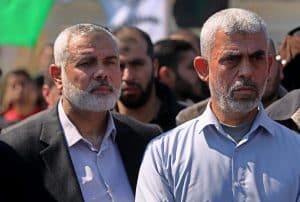

 Charlie Kirk
Charlie Kirk  or further away.
or further away. 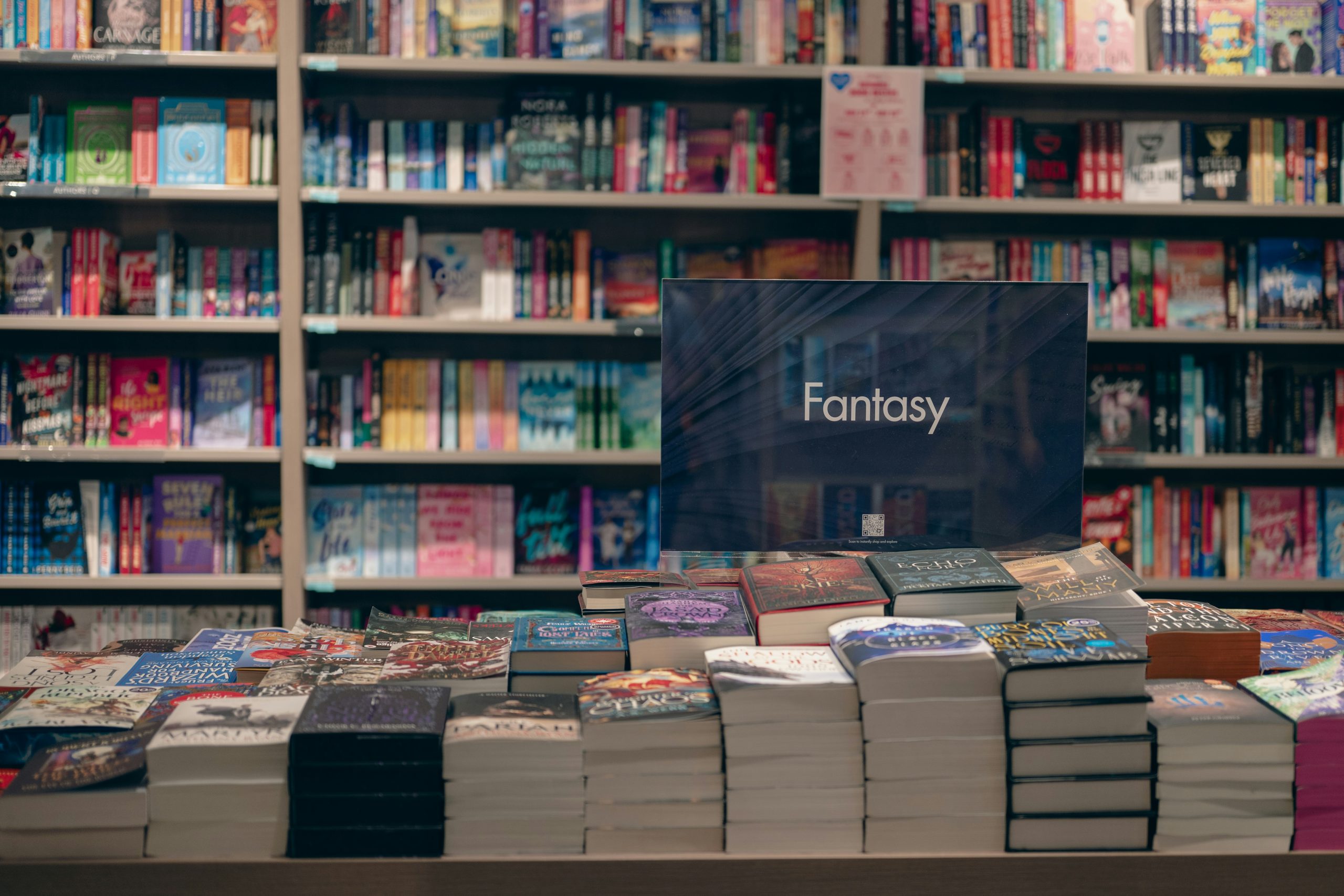
 , imagine the possibilities of the kinds of fantasy novels we can write.
, imagine the possibilities of the kinds of fantasy novels we can write. 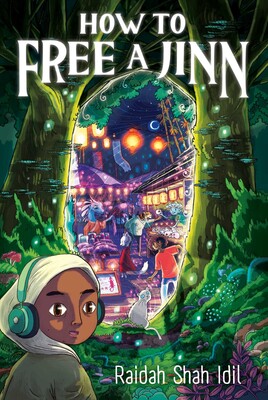
 .
.





